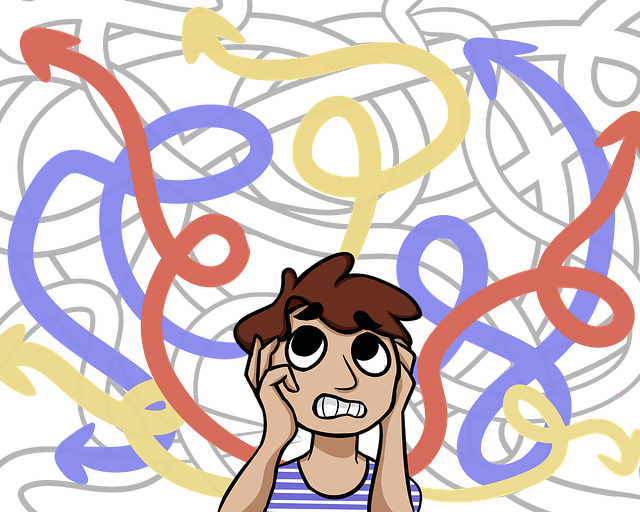That’s not a language in which I am conversant, either. I’m an English-speaker, from age 9 months until death.

English is notorious for adopting words from other languages, leading to occasional miscommunications. Rather than acknowledging the mistake, English speakers tend to double down and embrace the error, creating new words all on their own. Below are five words that were invented by mistake:
Algorithm – Often used in reference to computing, an algorithm is a set mathematical process with clear steps in order to arrive at the right answer. But the word algorithm is a mistranslation of the name of 9th-century Persian mathematician Muḥammad ibn Mūsā al-Khwārizmī. It was Latinized to be Algoritmi. That’s right — one of the fundamental terms in the field of mathematics comes from a mispronunciation of a name.
Sneeze- The Old English word fnesan means to snort. Styles of writing and penmanship later changed, and there was confusion between the letter “s” and the letter “f.” Fnesan turned into snesan, and there you have the start of sneeze. Gesundheit!
Tornado – A tornado is a flurry of winds, maybe so loud that people couldn’t hear the correct words. The etymology of this word is unclear, but it’s close enough to the Spanish words tronada, which means thunder, and tornar, which means to turn. The combination of the two, and perhaps not quite hearing the difference between the two, created the word tornado.
Culprit – Throughout the Middle Ages, the language of law was French. This word may have been created as a misinterpretation of a common abbreviation of legal documents, cul.prist. As years went on and English became more common, the abbreviation was harder to understand. It is most likely this confusion that created culprit as the guilty word we utilize today.
Ammunition – Ammunition, like Culprit, is from French, the dominant language throughout Europe in the Middle Ages. The word la munition, which means military weapons, was heard incorrectly by English speakers as ammunition, and the word has maintained its firing power throughout the present.
What lessons have we learned today? In American English, no mistake is really a mistake. Just stick to your guns and say something long enough and loud enough and it becomes forever a word.
Image by <a href=”https://pixabay.com/users/mmillustrates-8219771/utm_source=linkattribution&utm_medium=referral&utm_campaign=image&utm_content=3192273″>Maddy Mazur</a> from <a href=”https://pixabay.com/?utm_source=link-attribution&utm_medium=referral&utm_campaign=image&utm_content=3192273″>Pixabay</a>


Interesting word stories! Fnesan sounds more like an actual sneeze, doesn’t it? Best of luck with your short story collection.
A sneeze elicits “gesundheit”, which is one of the two words I know in the German language. The other is “Nien!”
Thanks for the good luck wish –
That was quite the shock I got when I went to visit you last month. Especially since I was certain that I had you on my blog once and you were promoting a YA.
That must’ve been awkwardly horrifying.
It’s interesting about algorithm. It really came to be because of a mispronunciation of a person’s name?
Thanks for your empathy, Lidy. It was horrifying and maximally awkward!
Especially because it’s GoDaddy, my web host’s error. I no longer needed the domain name pjcolandoblog.com for my blog when I re-built my author website, in which the blog is embedded, late that year. So that domain name was up for sale and the German porn site bought it!!
Love your word stories. I never would’ve guessed. Especially algorithm. I worked with them all the time – I was a computer programmer before I became a writer. A fascinating origin of the word I thought steeped in math.
Thanks, Olga! This was a fun post to research and then write.